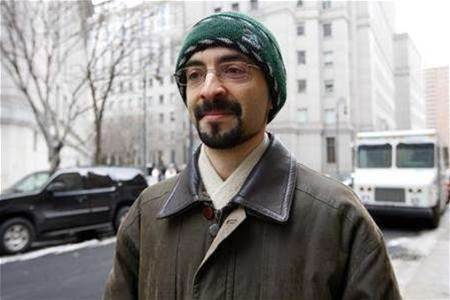A former Goldman Sachs computer programmer who was cleared in February of federal charges for stealing high-frequency trading code has been hit with new charges arising from the same activity.

Sergey Aleynikov, the former programmer, now faces charges brought by the office of Manhattan District Attorney Cyrus Vance, a new twist in a case first filed by US federal prosecutors in July 2009.
The case has been among the highest profile prosecutions as government investigators try to crack down on computer crimes and corporate espionage.
Federal prosecutors had accused Aleynikov of copying and removing trading code from Goldman in 2009 as he was preparing to take a new job at Teza Technologies, a high-frequency trading start-up firm in Chicago.
A Manhattan federal jury found Aleynikov guilty in December 2010. But a federal appeals court in New York overturned that verdict in February, setting Aleynikov free after he had served 11 months of an eight-year prison term.
The latest arrest warrant, dated last week and signed by an FBI agent, charged Aleynikov under New York state law with "unlawful use of secret scientific material" and "unlawful duplication of computer related material".
Aleynikov's lawyer, Kevin Marino, told Reuters on Thursday that "we look forward to vigorously defending Mr. Aleynikov against these false charges".
A Goldman spokesman declined to comment.
Vance's office was not immediately available for comment.
In throwing out Aleynikov's conviction, the 2nd Circuit had ruled that the taking of source code was not a crime under a federal law that makes it illegal to steal trade secrets, and that the code did not qualify as stolen goods under another federal law.
Vance, however, is trying to prosecute Aleynikov under New York state law, which could raise double jeopardy concerns, according to Eugene Cerruti, a professor at New York Law School who has been a federal prosecutor and public defender.
"New York courts have interpreted its state statute to preclude a separate prosecution in New York following a prosecution in another jurisdiction," he said.
Cerruti said he could not recall another situation in New York with a procedural history similar to Aleynikov's.
(Reporting by Grant McCool; Additional reporting by Emily Flitter and Jonathan Stempel; Editing by Martha Graybow, Gerald E. McCormick, Gary Hill)


_(36).jpg&h=140&w=231&c=1&s=0)
_(28).jpg&h=140&w=231&c=1&s=0)
_(33).jpg&h=140&w=231&c=1&s=0)






 iTnews Executive Retreat - Security Leaders Edition
iTnews Executive Retreat - Security Leaders Edition
 Huntress + Eftsure Virtual Event -Fighting A New Frontier of Cyber-Fraud: How Leaders Can Work Together
Huntress + Eftsure Virtual Event -Fighting A New Frontier of Cyber-Fraud: How Leaders Can Work Together
 iTnews Cloud Covered Breakfast Summit
iTnews Cloud Covered Breakfast Summit
 Melbourne Cloud & Datacenter Convention 2026
Melbourne Cloud & Datacenter Convention 2026
 The 2026 iAwards
The 2026 iAwards












_(1).jpg&h=140&w=231&c=1&s=0)



